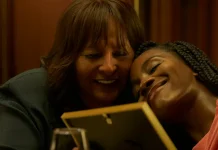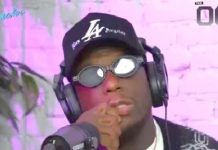
*The legal drama surrounding video of a toddler grooving to Prince’s “Let’s Go Crazy” may finally come to an end.
A minute order put out by the judge indicates the parties have reached a settlement in principle, although it’s reported that everything is contingent on final approval of language in the deal, notes The Hollywood Reporter’s Eriq Gardner. Terms of the potential settlement haven’t been made public.
In February 2007, proud mother Stephanie Lenz posted a 29-second video of her 18-month-old son bouncing to “Let’s Go Crazy” on YouTube. The song, of poor audio quality, was only heard during 20 of the 29 seconds. Watch below:
In June, Universal Music swooped down to claim a copyright violation and register a takedown of the clip with YouTube. Lenz, in response, sent YouTube a counternotification that her video should be reposted because it didn’t infringe the label’s copyright.
Lenz wouldn’t stop there, according to THR’s Gardner:
Assisted by attorneys at the Electronic Frontier Foundation, which saw her ordeal as the perfect test case in the burgeoning era of social media, Lenz filed a lawsuit July 24, 2017 that alleges Universal had violated the Digital Millennium Copyright Act by knowingly misrepresenting its copyright. According to the plaintiff, it should have been self-evident that the cute toddler dancing video was a noninfringing fair use.
The dispute marked an important if overlooked aspect of the legacy of Prince himself. For years, the musician was hot and cold when it came to digital services that exploited his works — and here, Prince let it be known to Universal that he wasn’t happy about what he saw in the Lenz video. For this, Prince received the “Raspberry Beret Lifetime Aggrievement Award” from EFF in its Takedown Hall of Shame.
As for the legal battle, it was the kind of brain-twister that had judges issuing opinions and reconsiderations. At one point, the Supreme Court even wanted the solicitor general to weigh in — and the case became one of the Trump administration’s first amicus briefs to the high court.
Most important was what happened at the 9th Circuit Court of Appeals.
There, in September 2014, a panel of judges ruled that copyright owners indeed must consider fair use when sending takedown notices. But it wasn’t quite the full victory that Lenz and EFF had been hoping to get. That’s because the federal appellate court agreed with Universal that if a copyright holder forms a subjective good faith belief that allegedly infringing material does not constitute fair use, that’s enough to shield the copyright holder from misrepresentation liability. The plaintiffs had wanted copyright holders to make a rigorous examination of objective criteria when dealing with the four factors that govern fair use.
Even in this decision, the 9th Circuit had to eat some of its words. Originally, it was suggested in the opinion from the panel that copyright holders could employ algorithms to examine fair use, but upon further consideration, the judges removed language on how algorithms could be a “valid and good faith middle ground for processing a plethora of content while still meeting the DMCA’s requirements to somehow consider fair use.”
After being invited to give input, the solicitor general told the Supreme Court that a “significant legal error” had been made, that copyright owners shouldn’t be liable “simply because an unknowing mistake is made,” but nevertheless advised the high court to pass on the case. In June 2017, with the dancing toddler now in grade school, the Supreme Court denied a review.
Still, there was plenty left to settle. A potential trial would have tested Universal’s subjective beliefs about the video in question. Lenz could have gone to trial and used any discovery she obtained about Prince’s involvement to try to show that the label knew it was wrong when it caused a takedown.
But it looks like no trial will be necessary.
We Publish News 24/7. Don’t Miss A Story. Click HERE to SUBSCRIBE to Our Newsletter Now!





